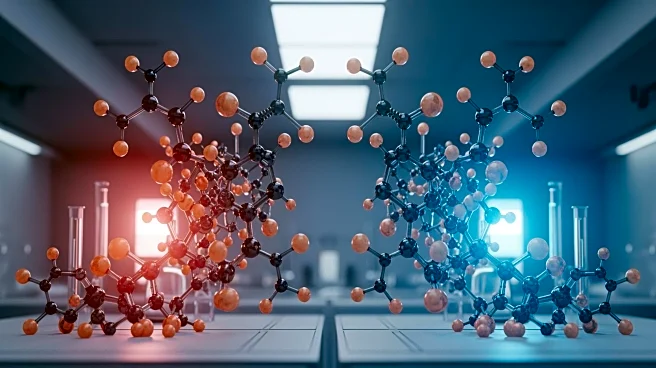What's Happening?
Researchers at Radboud University have developed a chemical computer that can perform multiple tasks without needing to be reconfigured. This innovative system uses a network of enzymes to process chemical inputs, allowing it to measure temperatures,
identify substances, and recognize patterns. Unlike traditional digital circuits, this chemical computer mimics biological systems by integrating chemical and physical signals. The system's adaptability is achieved through a dynamic network of reactions, enabling it to handle various tasks simultaneously. This development represents a significant advancement in the field of computing, offering the potential to bridge the gap between biological and digital systems.
Why It's Important?
The creation of a chemical computer capable of multitasking without reconfiguration is a breakthrough in computing technology. This innovation could have far-reaching implications for fields such as biotechnology, medicine, and environmental monitoring. By mimicking biological processes, the chemical computer offers a new approach to problem-solving that could lead to more efficient and adaptable computing systems. This technology could revolutionize how computers interact with biological systems, potentially leading to new applications in drug development, diagnostics, and environmental sensing. The ability to process complex chemical signals in real-time could also enhance our understanding of biological processes and improve the integration of technology with living systems.















